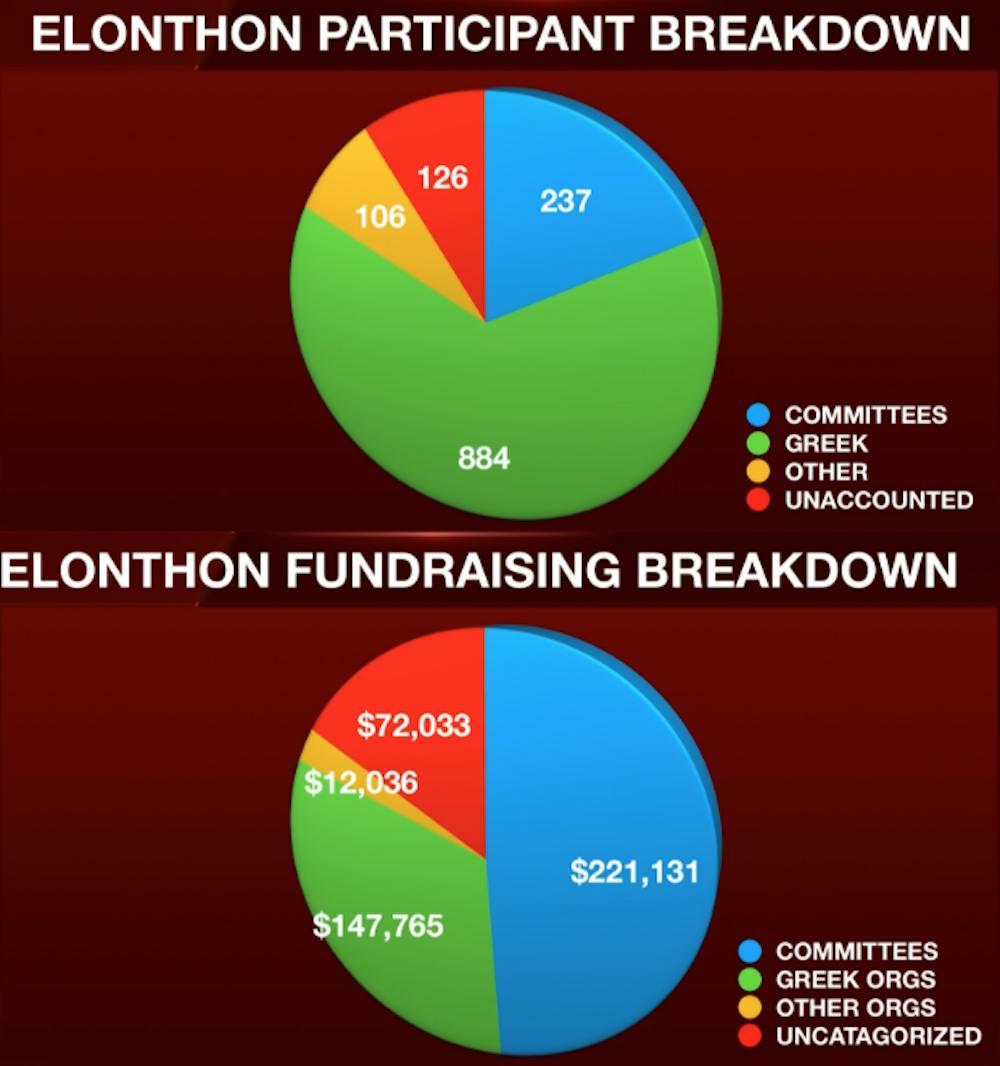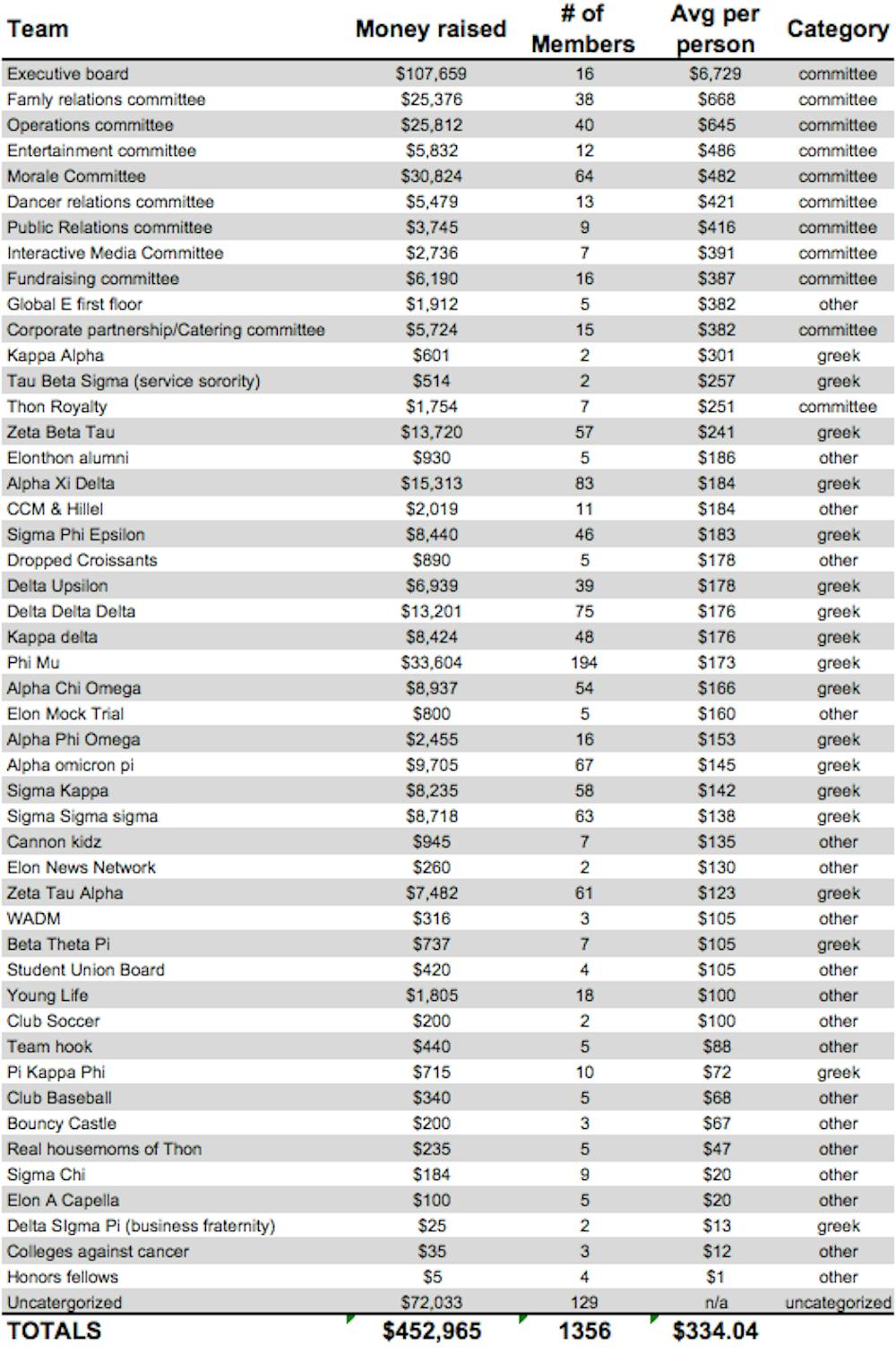A buzzer sounds throughout Alumni gym, signifying that $100 more have been raised for Duke Children’s Hospital.
The crowd cheers, and the buzzer sounds off again. More cheers, but the buzzer doesn’t stop.
It rings 50 times in a row, and sophomore Caroline Free begins to tear up.
Free flew to Elon for the weekend from her home in Pennsylvania in order to participate in Elonthon, Elon’s 24-hour dance marathon. She’s taken the semester off because she was diagnosed with Hodgkins lymphoma, a type of blood cancer, and is undergoing treatment at home this spring.
“I knew I definitely wanted to come back because I was seeing firsthand what people are going through and you never want to see a child go through all the tests and poking and prodding that I had to do,” said Free.
Free likes Elonthon because it feels personal to her, both because of her own experience, and the chance she gets to listen to childrens’ stories.
“Kids are there at Elonthon to speak and I think it makes it a lot closer to the heart instead of just mailing money halfway across the country,” Free said.
When buzzers stopped ringing at the end of “power hour,” one of the event’s fundraising pushes, Elonthon participants had raised $13,884 just by calling and texting their friends and family or posting on social media during that one-hour period.
Free thinks Elonthon brings together the campus community.
“I think it’s a great way to get everyone involved, no matter what, whether you’re in a sorority, fraternity, or on a sports team, it just brings everyone together.”
Elonthon’s president, Sydney Epstein, was unavailable for an interview about the event. Every committee member asked to interview declined, and referred ENN to Epstein.
Who’s dancing?
On Elonthon’s website, all 52 teams and their members are listed. An ENN analysis found that 65% of participants were registered with a Greek organization.
The actual percentage of students in Greek organizations is higher because several affiliated students were registered as a committee member. According to the Fraternity and Sorority life website, 42% percent of Elon’s campus are members of the greek community.

Elonthon event planning committee and executive members made up 18% of the registered dancers, and the other 18% were dancers from other organizations or were not part of a team.
Where is the money coming from?
There is a mandatory fundraising minimum of $250 for committee members and $100 for dancers who are not on a committee.
According to Elonthon’s website, the 16 executive board members raised more than $100,000.
Although the committee members only made up 18% of the participants, they fundraised almost half of the total money raised on their personal pages.
Teams registered with Greek life raised 33% of the money, and teams from other organizations raised 3% of the total.
The highest individual fundraiser was Sophie Healy, an executive board member who raised $51,038.
ENN broke down the fundraising by individual teams below.
Where’s the money going?
According to Epstein, every cent of the of the $452,965.18 raised is donated to Duke Children’s Hospital through the nonprofit Children’s Miracle Network Hospitals.
To put that number in perspective, the most recent data for Alamance Regional Hospital showed they took in $176,035 in donations for the entire year in 2015. That’s a third of what Elonthon raised for Duke in a few months.
Epstein said that all of the operational costs of the event are covered by a $25 registration fee that each dancer pays and a $10,000 grant from Love’s Food Shops. Committee members also work to get food and supplies donated.


